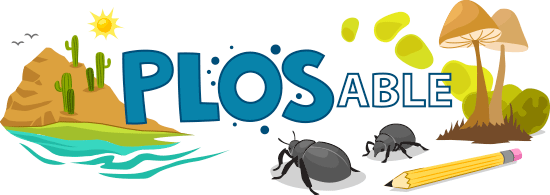
Nature's Balancing Act
What’s in the Story?
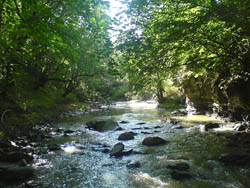
Humans change the environment all the time to make their lives easier. Think about our houses, the cars that transport us places, or the planes we use to go on summer vacation. All of those changes have made our lives easier, but scientists think that human changes to the environment aren’t always a good thing. When humans change an environment it affects the number and variety of species that live in that ecosystem, called the biodiversity. In the PLOS Biology article, “Biodiversity Loss Threatens Human Well-being,” scientists examined how losing biodiversity harms all of us.
The Great Balancing Act
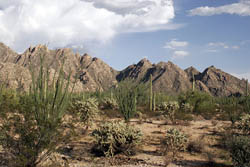
Think of how tightrope walkers try to maintain balance. One step too far to the left or right and they fall down. That’s just like the environment. All the organisms in an environment (plants, animals, insects, and even bacteria) have to live together in balance. Biodiversity is the ring leader in the environmental circus. It helps the environment keep its balance. Any change in the number, type, or variety of organisms can result in changes to the natural resources humans use around the world.
Exactly how a change in biodiversity affects the environment depends on the types of organisms in the area. Although it is hard to predict how the environment will respond to a change in biodiversity, scientists know two things for sure:
- When humans change an environment we lose biodiversity.
- Changes in biodiversity results in clear winners and losers.
Who is the Big winner? Who is the Poor Loser?
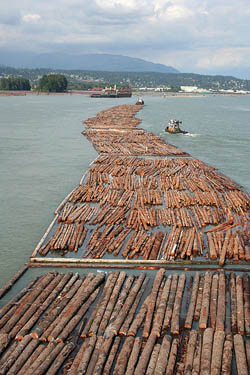
Some scientists think that the big losers are organisms that live longer, are bigger, don’t have many babies, and are specific to one environment. This kind of sounds like some of your favorite zoo animals, like polar bears, elephants, and gorillas, but this group also includes humans. The big winners are organisms that are smaller, have lots of babies, live shorter lives, and can live in lots of different environments. This kind of sounds like lots of different insects.
Humans may be the biggest losers of all because we are the ones responsible for environmental change, and the ones with the power to protect the environment. When humans change an environment by cutting down trees, letting livestock graze, or building structures, it affects the biodiversity. All the special plants, animals, and insects that live there decrease, which is bad for the environment.
It also means that the natural resources humans use are also at risk. This is troubling because humans rely heavily on natural resources created by the environment, like water, plant products, and many different minerals that come from the earth. It is in our best interest to preserve the biodiversity of an ecosystem so that all the organisms in an area aren’t harmed by human activities. If we destroy the environment, we could be left with less drinkable water, less available land, and fewer natural resources.
The Bottom Line
Biodiversity is important to the keeping the ecosystem healthy, and it is also very important to keeping us healthy too. Constant destruction of the environment threatens human life as we know it. Can you imagine a world with no food, poor air, or dirty water? Do you think human life would still exist without these things?
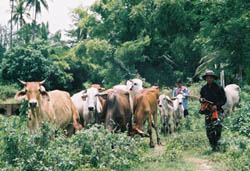
So how can we slow or eventually stop the loss of biodiversity? People in the government are creating laws and regulations like the Wilderness Act. Acts like this protect the biodiversity in a specific ecosystem (like Yellowstone National Park) and also protect the natural resources people use in that environment. The best thing about government creating rules is that everyone in our country has to follow them. Another way to help stop the loss of plants, animals, and insects is for scientists to better understand how natural resources are affected by changes in biodiversity. Once we know how the environment reacts to different things people do, we can keep ecosystems better balanced, and continue to live successful lives with the help of nature.
Images from Wikimedia:
River Biome - Armen Atomian
Desert Biome - Tomas Castelazo
Logging - Tony Hisgett
Polar Bear - USFWS
Nivali Well - Stig Nygaard
Thailand Livestock - Torikai Yukihiro
Bibliographic details:
- Article: Nature's Balancing Act
- Author(s): Stephanie Vera
- Publisher: Arizona State University School of Life Sciences Ask A Biologist
- Site name: ASU - Ask A Biologist
- Date published:
- Date accessed:
- Link: https://askabiologist.asu.edu/plosable/losing-species-bad-news
APA Style
Stephanie Vera. (). Nature's Balancing Act. ASU - Ask A Biologist. Retrieved from https://askabiologist.asu.edu/plosable/losing-species-bad-news
Chicago Manual of Style
Stephanie Vera. "Nature's Balancing Act". ASU - Ask A Biologist. . https://askabiologist.asu.edu/plosable/losing-species-bad-news
Stephanie Vera. "Nature's Balancing Act". ASU - Ask A Biologist. . ASU - Ask A Biologist, Web. https://askabiologist.asu.edu/plosable/losing-species-bad-news
MLA 2017 Style

Be Part of
Ask A Biologist
By volunteering, or simply sending us feedback on the site. Scientists, teachers, writers, illustrators, and translators are all important to the program. If you are interested in helping with the website we have a Volunteers page to get the process started.
